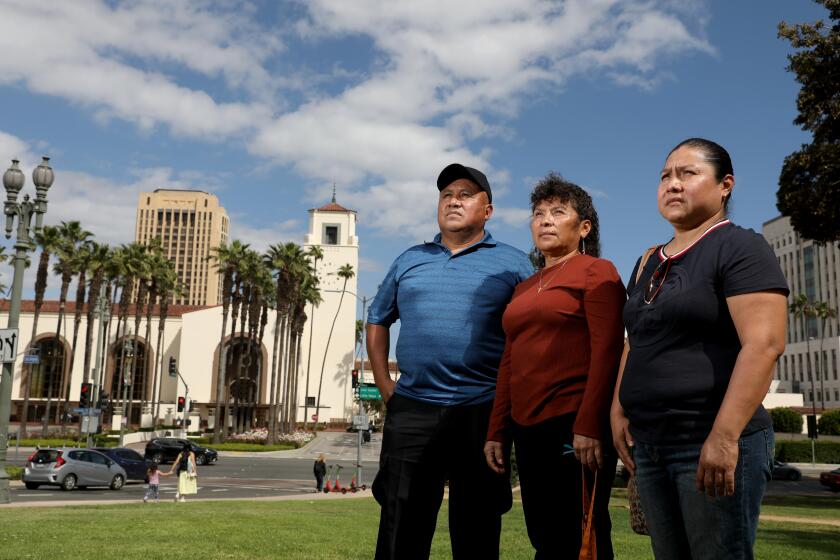
- Share via
Men followed her, made catcalls, leered.
Whenever Scarlett De León felt unnerved taking the bus as a young girl — to school, or work or anywhere else she needed to be — she sat near the driver or close to friendly looking passengers.
“I think my experiences on public transportation are very similar to, just, women’s experiences in public spaces,” she said. “What made me feel safe during that time was having friends around me, bus drivers, other riders.”
Now an advocate, De León, 32, has pushed for a so-called ambassador program on the Los Angeles County Metropolitan Transportation Authority’s bus and rail system.
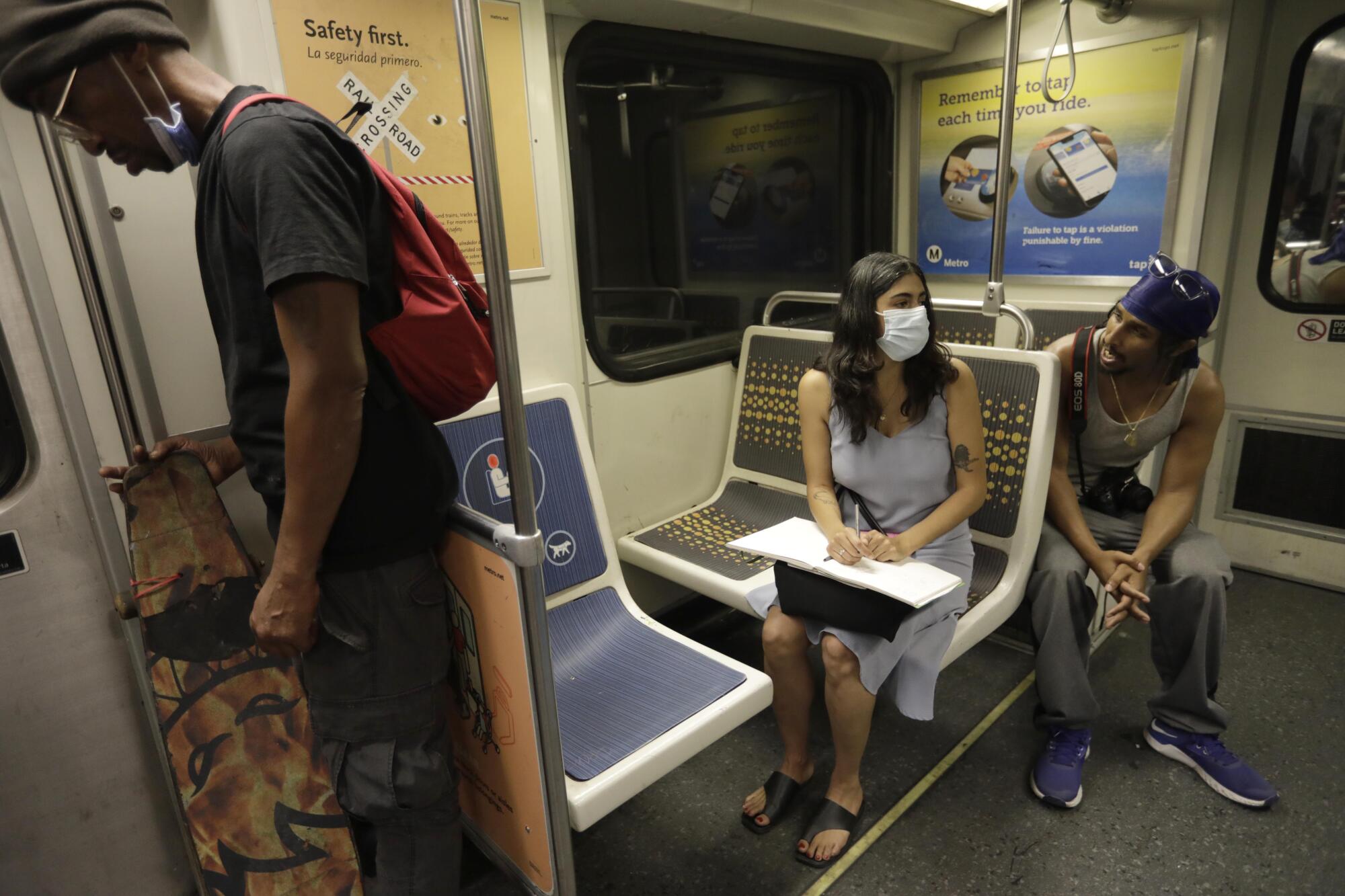
The $122-million pilot program, approved by Metro’s executive board in June, will place up to 300 uniformed workers on trains and buses starting this fall with the aim of making riders feel safe. The ambassadors will help with directions, alert police of a threat, point people to homeless services, keep an eye on vulnerable people and check that seats are clean and passengers are safe.
The program will run up to five years and could be expanded if successful.
The transit agency, like many others across the country, has been grappling with sagging ridership and increased crime. Officials hope the program will create a sense of security, lure back longtime users and bring in new commuters.
As homeless people shelter in Union Station, janitors and retail workers face threats, erratic behavior and assaults. Their union wants protection.
Los Angeles County Supervisor Hilda Solis, who led the Metro board until Thursday, said it was “likely to be one of the most significant programs this agency will ever launch.”
Some workers will be at fixed stops, while others will roam the system. None will be armed or give out tickets. The effort is part of a package of reforms aimed at shifting funds to homeless outreach and finding alternatives to armed law enforcement — approved by Metro’s board after widespread protests over George Floyd’s murder by police two years ago in Minneapolis.
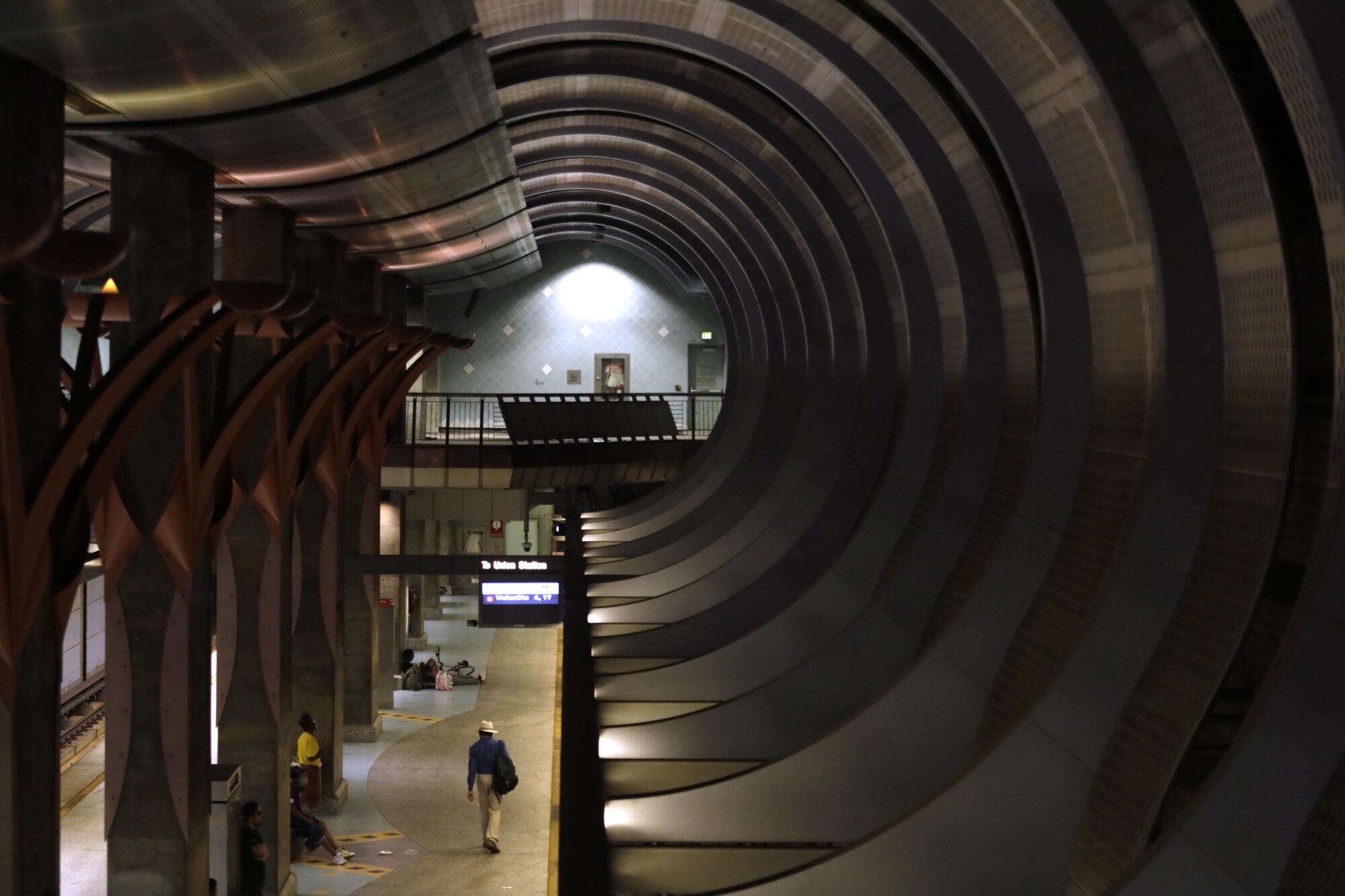
The agency hopes to ease tensions some riders feel with law enforcement. Advocates point out that Black riders received 53% of fare-evasion tickets in 2020 while making up just 16% of passengers.
De León said that when she was 18, she got an arrest warrant for fare evasion and was terrified of what the fines might do to her family.
“A lot of times, we had a dollar to pay for our bus or for food,” she said. “I lived with my single mom, and the economic burden of tickets and warrants was a scary burden. I wasn’t sure if I was going to be able to pay it and what those consequences would be.”
De León is now the campaign manager for Alliance for Community Transit Los Angeles, a nonprofit advocacy coalition working with other groups to push Metro to limit or end its contract with law enforcement.
After the George Floyd protests roiled the country, Metro was more receptive to perspectives like De León’s.
Los Angeles Councilman and Metro board member Mike Bonin introduced the reforms that created an advisory board, which includes De León, to help the agency create the ambassador program. Bonin was inspired by a statement put out by the National Assn. of City Transportation Officials at the time.
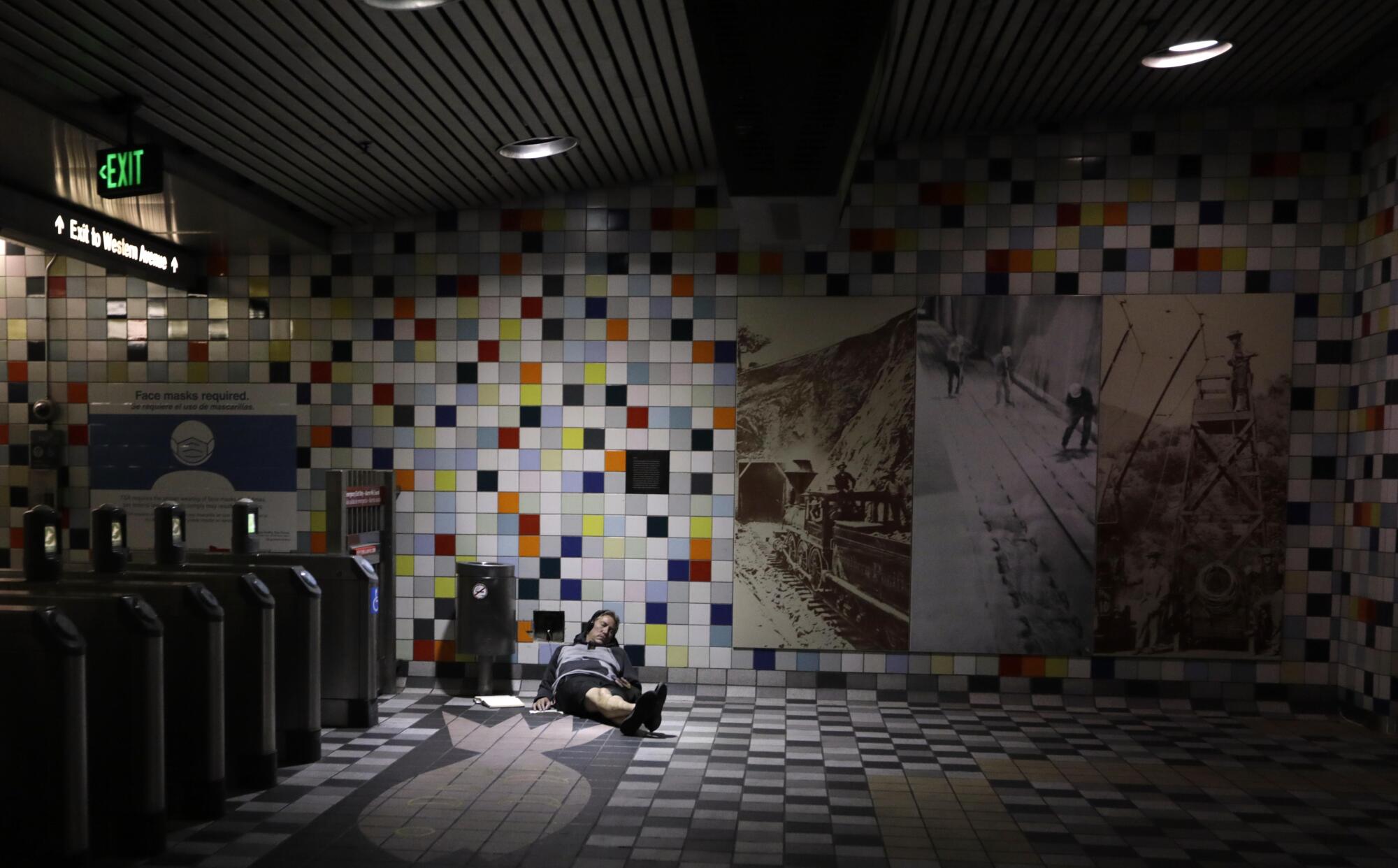
“Racism, police violence and structural inequity are transportation problems and as transportation planners, engineers, policy and decision-makers we cannot turn a blind eye,” it read. It condemned law enforcement harassing people of color on transit and in the streets.
“It was a very powerful statement,” he said. “I thought, OK, this is probably my best space to try to do something in.”
Modeled on similar programs on the Bay Area Rapid Transit system and on the Southeastern Pennsylvania Transportation Authority’s system, the Metro ambassadors will carry cellphones and radios with lines into law enforcement and mental health crisis response teams.
“You don’t need to provide more law enforcement if customers just need, for example, a friendly face,” said Desarae Jones, Metro senior director of special projects. “What we have heard in our customer surveys is not that they want more security, but just more presence. Because they’re in a station and they’re alone, and they feel like if there was someone there in the station with them, if something did happen, they would just automatically feel safer.”
Those surveys of about 2,000 current and lapsed riders taken last summer found only 18% of females riders felt very safe riding the Metro. Only 11% of all riders felt very safe riding on the system at night.
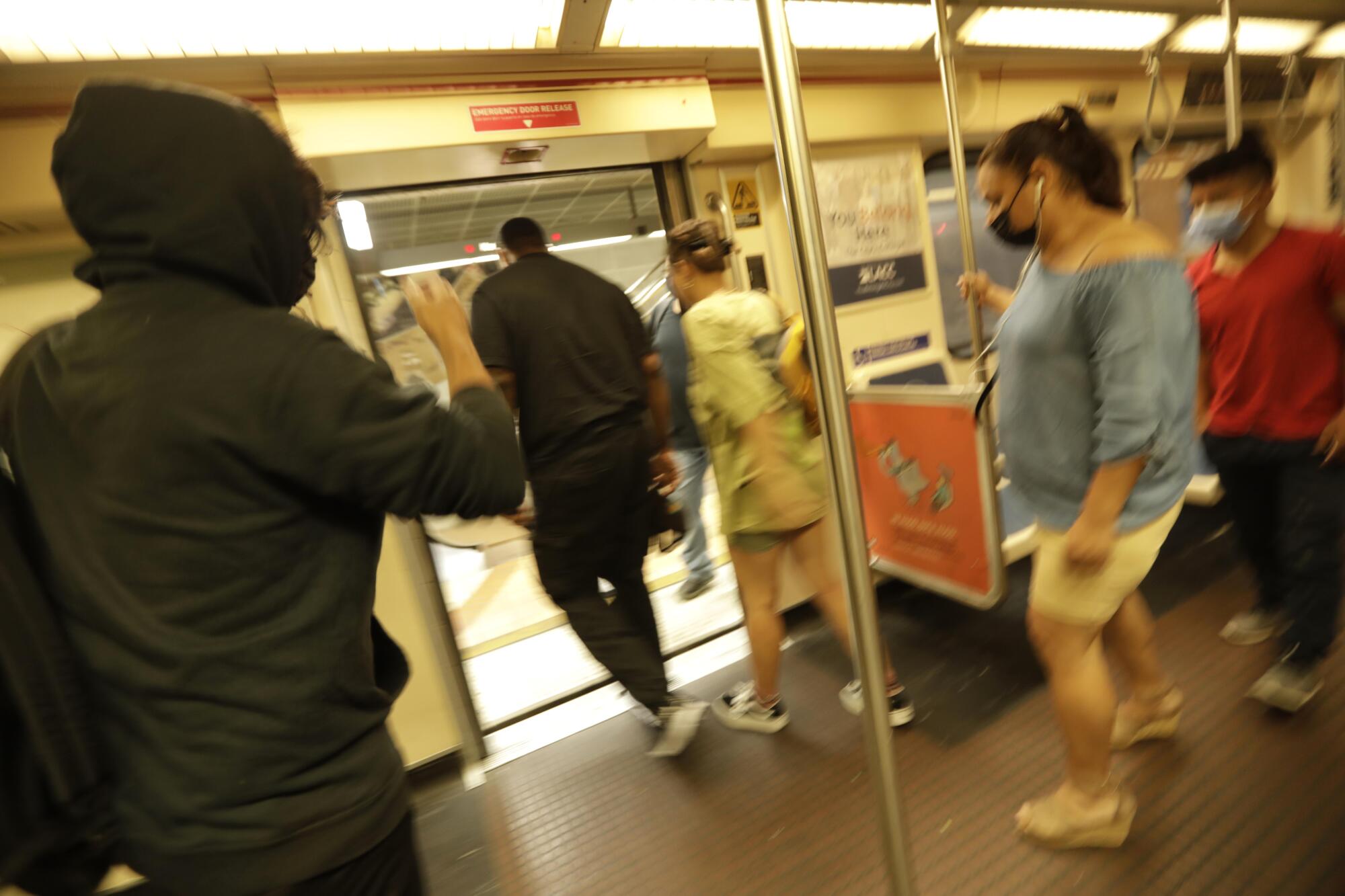
Violent crimes on the system are up 72% for the first four months of this year compared with 2021. And despite some people’s reservations about more cops on the system, riders’ top recommendation to improve safety was more security and police.
“I want more cops,” said Shavonne Mays, 45, who was walking to catch the subway at Union Station. “I just saw someone pushed on the elevator.”
She said she avoids taking Metro if she can.
The survey found commuters want the ambassadors to deal with drug use, fights on the system and racial and sexual harassment. But 68% wanted Metro to make police more of a priority.
“I have serious doubts that the ambassadors are going to make a difference and solve some of the issues that the riders find most disturbing,” said Metro Board chair and Glendale City Councilman Ara Najarian.
“An ambassador isn’t going to stop someone from taking an aerosol can lighting a match to it and using it as a blowtorch,” he said, referring to a May 11 attack in which a rail passenger was set ablaze.
“It’s not going to stop someone from being robbed, abused or sexually assaulted,” Najarian said. “Ambassadors will help you know which train is next and ‘Where do I stand?’”
Metro has said the ambassadors, although not police, can work with law enforcement.
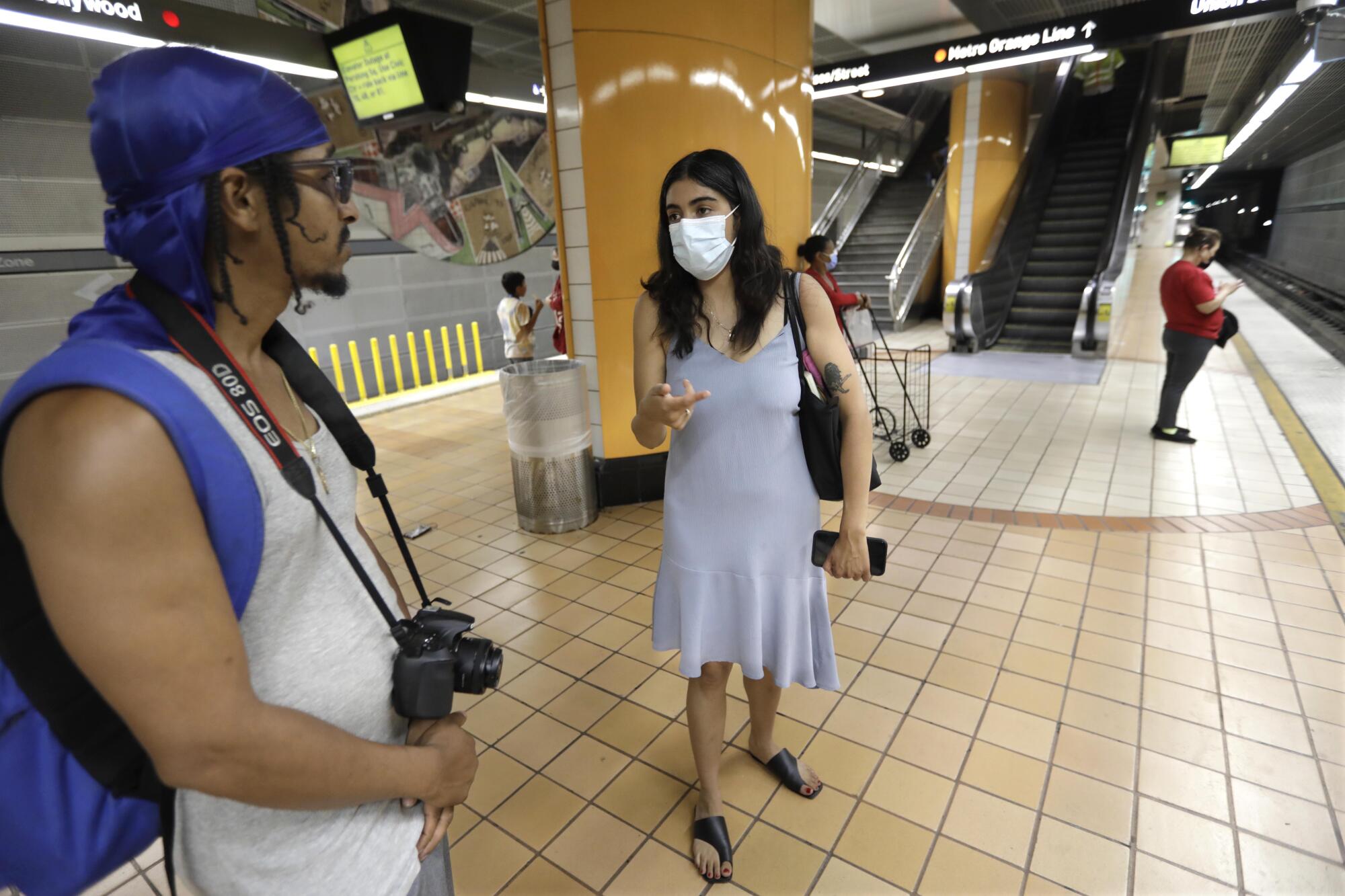
In the Bay Area, where ridership has sunk, the ambassadors have largely been giving out masks and doing welfare checks on riders. But several have also administered Narcan, a drug that reverses opioid overdoses. Officials there believe their presence deters crime.
“Just them being in a train may stop someone from smoking crack or from defecating in a train car,” said BART Deputy Chief Angela Averiett, who leads the bureau of progressive policing. “I think it really makes people kind of think twice before they do something that’s illegal or harmful to themselves or others.”
Since January, BART’s team of 10 ambassadors has ridden 5,300 trains and had contact with about 1,700 riders, a BART spokesperson said. While they are employed by the police, they are civilians who complement officers’ work.
Averiett said if an ambassador encountered a rider using drugs — a frequent complaint among Metro riders — they would not approach the person but call the transit police. In other situations, the ambassadors have deescalated people in mental health crises.
Metro is trying a different approach, not running the program through its police contractors but hiring two companies to carry out the contract: Strive Well-Being, a workplace wellness company, and RMI International, a security firm based in Paramount.
Strive will recruit about 55 people from local nonprofits such as Communities Actively Living Independent & Free and Homeboy Industries to be ambassadors. The bulk of the ambassadors will come from RMI, which already provides private security on Metro, a potential point of contention for some of the activists who pushed for the program.
“I don’t know how this is going to roll out yet,” De León said. “But I would say that it cannot be the same people doing security that are doing the ambassador program.”
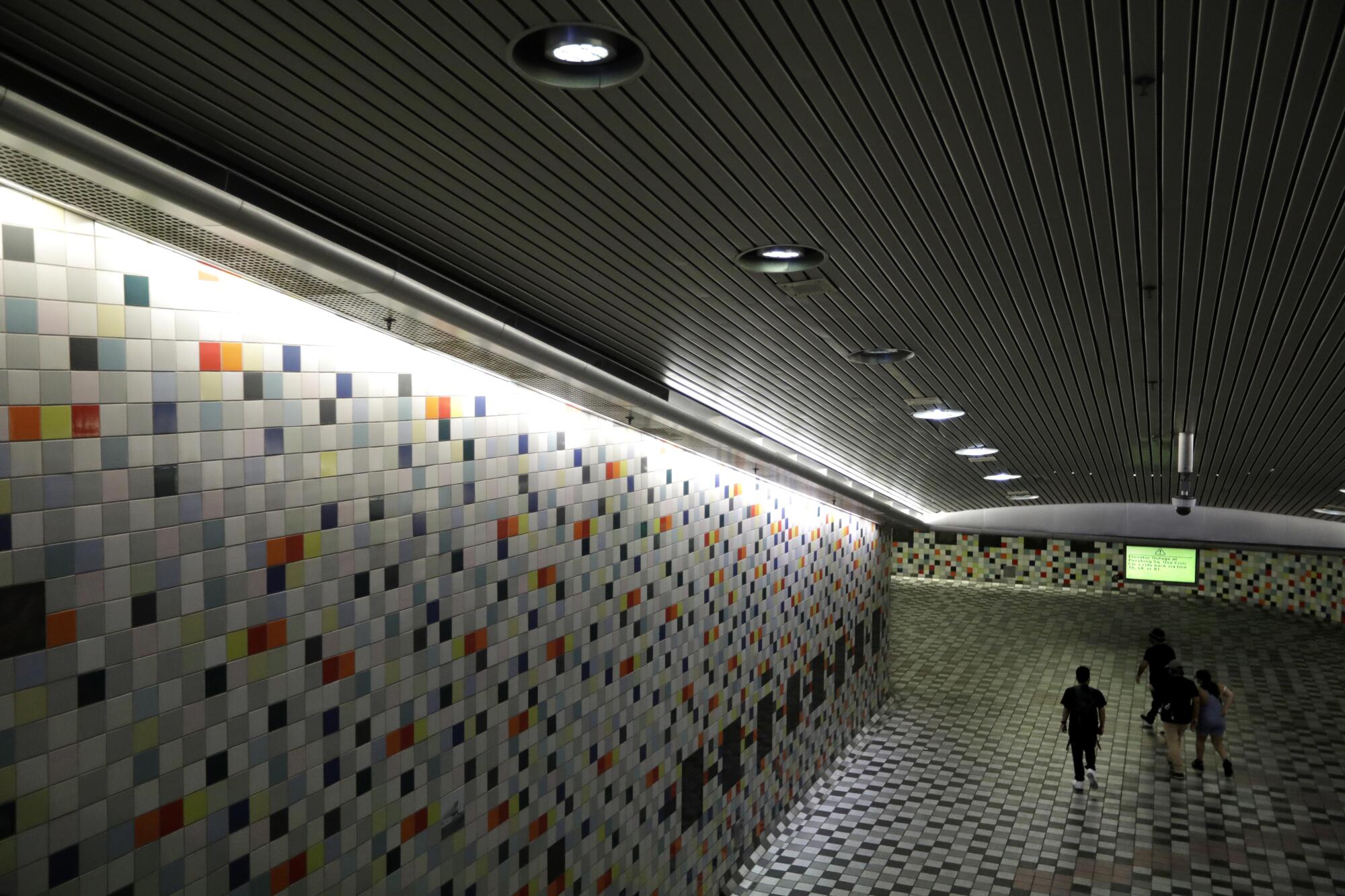
More to Read
Sign up for Essential California
The most important California stories and recommendations in your inbox every morning.
You may occasionally receive promotional content from the Los Angeles Times.

